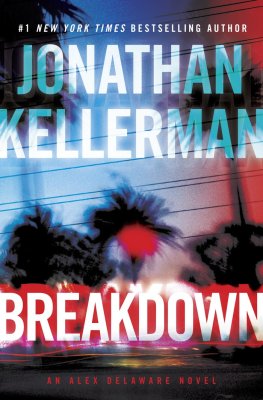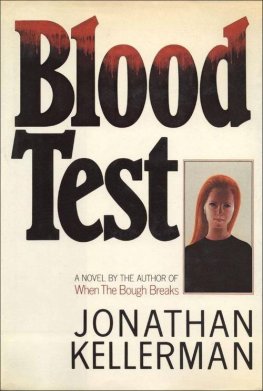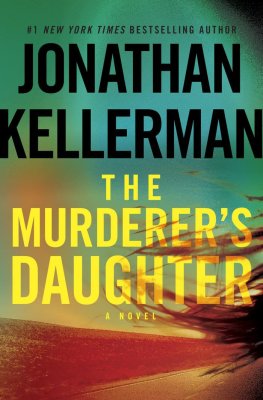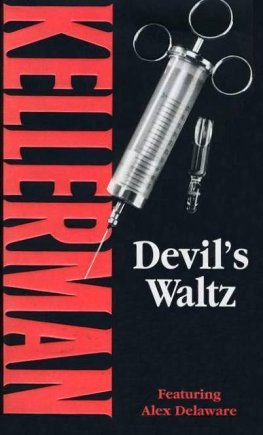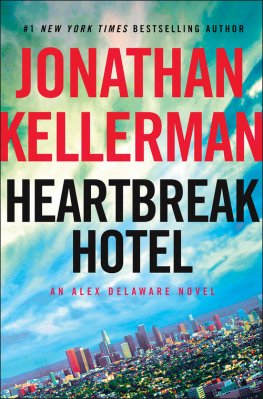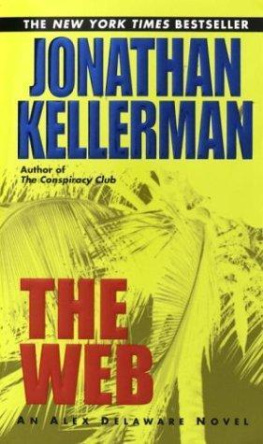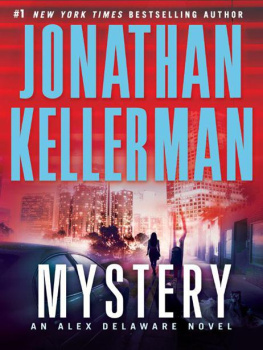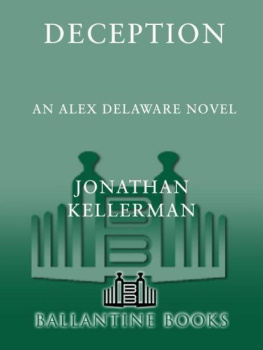"[Kellerman] has shaped the psychological mystery novel into an art form." Los Angeles Times Book Review
"More than satisfying Kellerman delves deep into the psyche of his characters, peeling back the layers of secrets to uncover a stunning truth." -The Orlando Sentinel
"Kellerman uses bloody killings, psychological intrigue and a straight-ahead writing style to keep readers turning pages well into the night." -The Denver Post
"Often, mystery writers can either plot like devils or create believable characters. Kellerman stands out because he can do both. Masterfully." USA Today
"[An] intriguing thriller A heady blend of criminal profiling and police procedural and another surefire hit for the bestselling Kellerman." -Booklist
People are voluntarily dying before their time in California. Some call it assisted suicide when cancer or heart disease or painful old age make the quality of life unbearable. Others say it is murder, that no-one has the right to help others take their own life.
As the debate rages over whether euthanasia should be legalised or not the man at the centre of the row, nick-named Doctor Death, continues his work. Dr Alex Delaware joins in the argument, but when Detective Milo Sturgis comes to him with the suspicion that some of Doctor Death's patients are not willing collaborators, Delaware finds himself on the front line of the affair, and increasingly believes that euthanasia is not the prime motivation. So what is driving Doctor Death to kill so many?
CHAPTER 1
IRONY CAN BE a rich dessert, so when the contents of the van were publicized, some people gorged. The ones who'd believed Eldon H. Mate to be the Angel of Death.
Those who'd considered him Mercy Personified grieved.
I viewed it through a different lens, had my own worries.
Mate was murdered in the very early hours of a sour-smelling, fog-laden Monday in September. No earthquakes or wars interceded by sundown, so the death merited a lead story on the evening news. Newspaper headlines in the Times and the Daily News followed on Tuesday. TV dropped the story within twenty-four hours, but recaps ran in the Wednesday papers. In total, four days of coverage, the maximum in short-attention-span L.A. unless the corpse is that of a princess or the killer can afford lawyers who yearn for Oscars.
No easy solve on this one; no breaks of any kind. Milo had been doing his job long enough not to expect otherwise.
He'd had an easy summer, catching a quartet of lovingly stupid homicides during July and August-one domestic violence taken to the horrible extreme and three brain-dead drunks shooting other inebriates in squalid Westside bars. Four murderers hanging around long enough to be caught. It kept his solve rate high, made it a bit but not much easier to be the only openly gay detective in LAPD.
"Knew I was due," he said. It was the Sunday after the murder when he phoned me at the house. Mate's corpse had been cold for six days and the press had moved on.
That suited Milo just fine. Like any artist, he craved solitude. He'd played his part by not giving the press anything to work with. Orders from the brass. One thing he and the brass could agree on: reporters were almost always the enemy.
What the papers had printed was squeezed out of clip-file biographies, the inevitable ethical debates, old photos, old quotes. Beyond the fact that Mate had been hooked up to his own killing machine, only the sketchiest details had been released:
Van parked on a remote section of Mulholland Drive, discovery by hikers just after dawn.
DR. DEATH MURDERED.
I knew more because Milo told me.
The call came in at eight P.M. just as Robin and I had finished dinner. I was out the door, holding on to the straining leash of Spike, our little French bulldog. Pooch and I both looking forward to a night walk up the glen. Spike loved the dark because pointing at scurrying sounds let him pretend he was a noble hunter. I enjoyed getting out because I worked with people all day and solitude was always welcome.
Robin answered the phone, caught me in time, ended up doing dog-duty as I returned to my study.
"Mate's yours?" I said, surprised because he hadn't told me sooner. Suddenly edgy because that added a whole new layer of complexity to my week.
"Who else merits such blessing?"
I laughed softly, feeling my shoulders humping, rings of tension around my neck. The moment I'd heard about Mate I'd worried. Deliberated for a long time, finally made a call that hadn't been returned. I'd dropped the issue because there'd been no good reason not to. It really wasn't any of my business. Now, with Milo involved, all that had changed.
I kept the worries to myself. His call had nothing to do with my problem. Coincidence-one of those nasty little overlaps. Or maybe there really are only a hundred people in the world.
His reason for getting in touch was simple: the dreaded W word: whodunit. A case with enough psycho-pathology to make me potentially useful.
Also, I was his friend, one of the few people left in whom he could confide.
The psychopathology part was fine with me. What bothered me was the friendship component. Things I knew but didn't tell him. Couldn't tell him.
CHAPTER 2
I AGREED TO meet him at the crime scene the following Monday at 7:45 A.M. When he's at the West L.A. station, we usually travel together, but he was already scheduled for a 6:15 meeting downtown at Parker Center, so I drove myself.
" Sunrise prayer session?" I said. "Milking the cows with guys in suits?"
"Cleaning the stable while guys in suits rate my performance. Gonna have to find a clean tie."
"Is the topic Mate?"
"What else. They'll demand to know why I haven't accomplished squat, I'll nod a lot, say 'Yassuh, yassuh,' shuffle off."
Mate had been butchered fairly close to my home, and I set out at seven-thirty. The first leg of the trip was ten minutes north on Beverly Glen, the Seville fairly sailing because I was going against traffic, ignoring the angry faces of commuters incarcerated by the southbound crush.
Economic recovery and the customary graft had spurred unremitting roadwork in L.A., and hellish traffic was the result. This month it was the bottom of the glen: smug men in orange CalTrans vests installing new storm drains just in time for the next drought, the usual municipal division of labor: one guy working for every five standing around. Feeling like a pre-Bastille Royalist, I sped past the queue of Porsches and Jaguars forced to idle with clunkers and pickups. Democracy by oppression, everyone coerced into bumper-nudging intimacy.
At Mulholland, I turned left and drove four miles west, past seismically strained dream houses and empty lots that said optimism wasn't for everyone. The road coiled, scything through weeds, brush, saplings, other kindling, twisted upward sharply and changed to packed, ocher soil as the asphalt continued east and was renamed Encino Hills Drive.
Up here, at the top of the city, Mulholland had become a dirt road. I'd hiked here as a grad student, thrilling at the sight of antlered bucks, foxes, falcons, catching my breath at the furtive shifting of high grass that could be cougars. But that had been years ago, and the suddenness of the transformation from highway to impasse caught me by surprise. I hit the brakes hard, steered onto the rise, parked below the table of sallow dirt.


